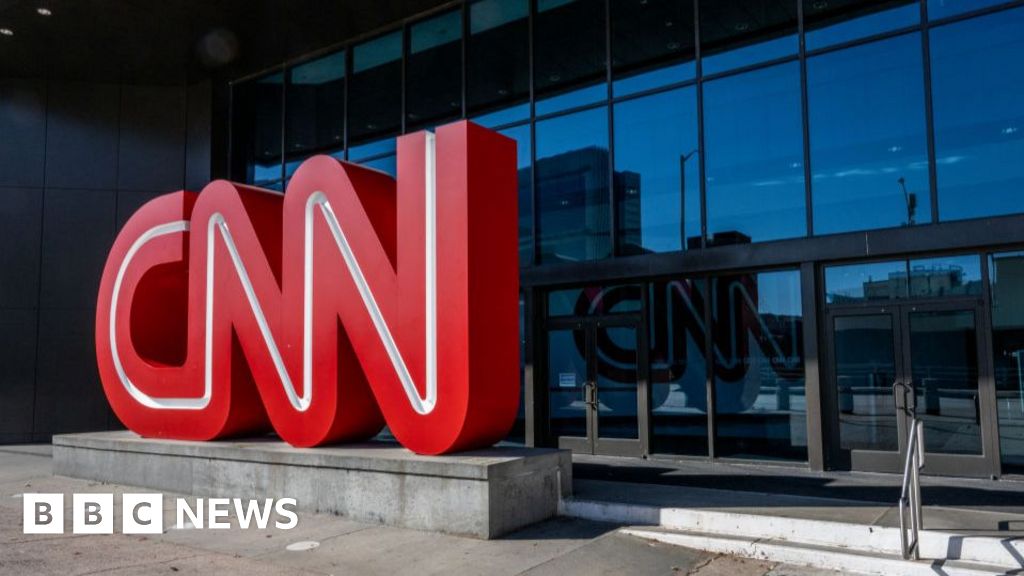ARTICLE AD BOX
By Robin Levinson-King & Jessica Murphy
BBC News, Windsor and Ottawa
Image source, Getty Images
A police raid on the truckers' protest at Windsor, Ontario, failed to shut it down. With protesters in Ottawa also digging in, what will it take to get them to budge?
They arrived by the bus load - police in balaclavas and carrying long guns, ready to oust dozens of protesters blocking roads leading to the Ambassador Bridge.
There were pickups and SUVs festooned with Canadian flags, anti-vaccination slogans and anti-Trudeau epithets, as well as some heavy commercial trucks.
About 100 vehicles have been parked along the roughly 2km (1.25 miles) of road leading up to the bridge for almost a week.
The Freedom Convoy, as it's been called, began as a protest against a mandate requiring truckers who cross the US-Canada border to be vaccinated.
But the group is not united by any one occupation - rather, they share a distrust of vaccines, a concern for government overreach and a general dislike of Prime Minister Justin Trudeau.
More than 12 hours after a court issued an injunction ordering the Windsor site to be cleared, the police moved in on Saturday morning. A number of vehicles agreed to leave immediately, although not without a loud honk or a shout of disapproval.
More were ticketed and towed in the evening. But vehicles are no longer the problem, says Jason Bellaire, deputy chief of operations for the Windsor Police Service.
The problem is the people, he says.
"We need to make it exceeding clear they're not welcome to stay here, they're not welcome to disrupt our bridge traffic, they're not welcome to disrupt our community," he told the BBC.
Image source, Getty Images
While many of the vehicles are now gone, a hundred or so people remain blocking the road - a mix of evangelical Christians, anti-mask mums, vaccine skeptics and local residents who are tired of lockdowns and vaccine passports.
"They [government leaders] are not following the laws that God gave them," said Tina, who did not give the BBC her last name.
The young woman's eyes welled with tears when she described how vaccine mandates have impacted her family.
"I want to see my family if they get sick. I've seen so many families die alone, they cannot say their goodbyes. It's not fair," she said. "My nieces - they don't know where their grandpa went because they didn't get to say goodbye."
Police have pushed them forward, inch by inch, down the empty road away from the bridge, but their gains are slow. The occupied roads have many entry points and are surrounded by residential streets and backyards, making it easy to walk in. People are coming and going freely, helping the protest grow.
While law enforcement has come prepared with armoured vehicles and tactical gear, they seem hesitant to act aggressively. So far they've made few arrests.
Carrying flags and singing "O Canada", the nation's anthem, the protesters say they won't go until all mandates are over.
Canada has a 90% vaccination rate, far higher than the US, and in many parts of the country you need to show proof of vaccination to access bars, gyms and restaurants.
Image source, Getty Images
"They're going to have to move us out. We'll be peaceful and we'll lock arms and show unity," said Dan, a protester who did not give his last name to the BBC.
That leaves both sides in a standstill, with police trying to negotiate with protesters to go home.
"We're negotiating with them, we're talking to them, we're doing everything we can to resolve this peacefully and convince them to leave," says Deputy Chief Bellaire.
About 750km (466 miles) east in Ottawa, the protest group that has taken over the nation's capital also shows no signs of slowing down.
Unlike the Windsor crowd, which has been limited to a few hundred people occupying one major road, the Ottawa protest has essentially taken over the centre of a major city, with thousands of people flooding the streets with Canadian flags.
Barbecues are set up on the street with food being handed out to hungry demonstrators, while people play street hockey to the sounds of dance music, honking horns and chants of "freedom".
"This is not an anti-vax movement; this is a freedom movement. It's for choice," said Justin Smith, who was enjoying Beavertails - a Canadian pastry - with his wife Brandy Lawrence on the sidelines of the protests on Saturday evening.
Truckers 'don't have the right to hold us hostage'
Both were wearing Canadian flags as capes and Justin wore a Canadian flag toque. They say they hate what mandates have done to their family, including their five children aged six to 16.
"I want my kids to go into a store and see a smile on someone's face. That's the saddest thing," said Ms Lawrence.
This wasn't the couple's first time in the Ottawa "red zone" - they came to support the convoy its first weekend, and drove the five hours from their home in southern Ontario to be there a second time. "I will do anything and everything I can do to support these people," says Mr Smith.
Some trucks had built miniature cardboard postal boxes on their vehicles - a not so subtle hint they mean to stay for a while.
There is a police presence - but mostly on the margins of the crowds. Demonstrators have defied warnings that people bringing fuel into the area face arrest.
A court order silenced loud honking from the trucks earlier this week, granting respite to downtown residents aggravated by the noise.
But some residents fed up with the noise and the disruption have accused police of idling by and allowing an occupation. Some businesses - including a major shopping centre - have closed their doors or have seen a drop in traffic.
While many of the demonstrators have been peaceful, residents have told the BBC they have been shouted at for wearing masks, and had trouble getting to and from work.
"We don't terrorise people and confront people wearing masks or barge into businesses try to harass and intimidate the staff," says Marika Morris. "This is not what we do to express our political views."
If the Ottawa protest has caused maximum community disturbance, then the Windsor protest has caused maximum economic chaos by shutting down one of the country's major trade arteries, the Ambassador Bridge, which connects Windsor with Detroit.
More than $323m (£238m) in goods crosses that bridge every day, and for nearly a week, not a dollar has made it to the US.
Image source, Getty Images
Almost half of that is just from the trade of car parts, says Flavio Volpe, president of the Automotive Parts Manufacturers Association. He does not mince words when it comes to the protest.
"In Windsor we have at its core, several dozen people who are macroeconomically illiterate and absolutely disrespectful of their own community, that they would imperil the economy of the region to make a point," he said. "Never has a tantrum cost so many people so much."
Despite these economic costs and concerns raised by Washington, Justin Trudeau has said he has no plans to send in the military.
But while French police fired tear gas to prevent their own Freedom Convoy from advancing, that's a tactic Windsor police don't seem to want to use. "It will take as long as it takes," Deputy Chief Bellaire said. "I'm not giving them a timeline."
One thing working in police's favour is Mother Nature.
With temperatures dropping to -17C (1.4 F) overnight, it will not be a pleasant evening for those trying to tough it out.

 2 years ago
63
2 years ago
63








 English (US) ·
English (US) ·